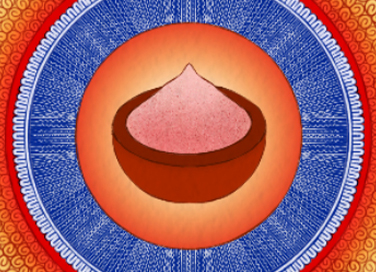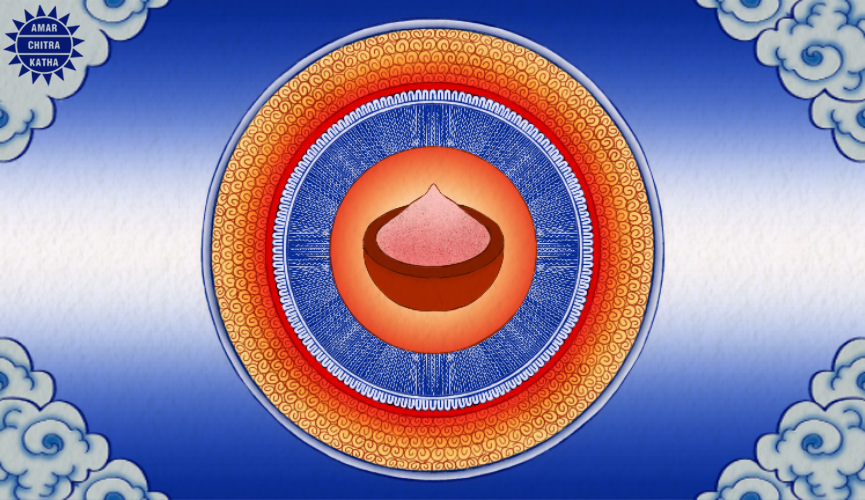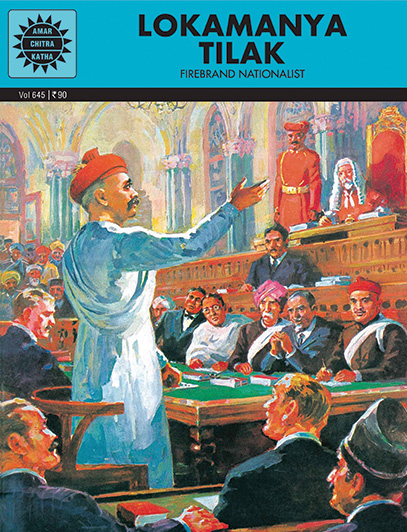Kala Namak: The Black Salt
- October 5, 2023


Kala Namak: The Black Salt
- October 5, 2023
By Shakthi Bharathi
According to Ayurveda, there are six tastes known as the ‘rasas’. Each rasa plays its own role in boosting health and influencing the taster’s mood. Thus, the perfect meal has to contain all six rasas: salty, sweet, pungent, sour, bitter, and astringent.
Salt, the first of these, has always been valuable in our country. The Tamil word ‘sambalam’, meaning wages, comes from samba (paddy) and alam (salt pans), as workers were paid in rice and salt. Salt is also a gauge of honour—derived from Urdu, the phrase ‘namak-haram’ refers to a traitor as someone who betrays the hand that has fed them.
To receive more such stories in your Inbox & WhatsApp, Please share your Email and Mobile number.

Illustration: Anjali Narendra
After the Dandi March, white salt conjures up the sounds of marching feet and the scent of sea breeze. But buried in the salt lakes of Rajasthan and the foothills of the Himalayas, lies a more colourful history. Kala Namak, a reddish-black rock salt, has been around for thousands of years. When finely powdered, it looks pink. Legend has it that Maharshi Charaka, the father of Ayurvedic medicine, documented its medicinal properties. According to him, Kala Namak is filled with minerals that aid digestion and enrich the body.
A sprinkle of Kala Namak is what gives chaat masala that distinct flavour. Its sulfuric smell, often likened to eggs, is also used to perk up vegan recipes.
To receive more such stories in your Inbox & WhatsApp, Please share your Email and Mobile number.

Comic of The Month
Lokmanya Tilak
Swaraj is my birthright and I shall have it' -- this clarion call was given by Bal Gangadhar Tilak. He was a towering figure in the Indian Independence movement. A nationalist to the core, he believed strongly that modern education would inculcate patriotism and self-respect in the people. His inspiring speeches and writing landed Tilak in jail several times. But this did not dampen his spirit or will to cast off the yoke of foreign rule from his motherland.